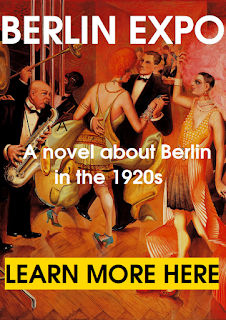 |
| Bridge over Ackerstrasse, 1927 |
|
Gustav
Wunderwald (1882 - 1945)
... was a German painter of the New Objectivity
style, and a theatrical set designer, born in Cologne.
In
1925 and 1926, Wunderwald was represented at the Great Berlin Art
Exhibition, and from 1927 in numerous national exhibitions. His works
dealt with industrial landscapes in the Berlin districts of Moabit
and Wedding, street canyons of Prenzlauer Berg, tenements, houses and
back-to-backs in Spandau. He painted bridges, subways, train
stations, billboards, as well as villas in Charlottenburg. People
were reduced to the role of anonymous figures seen from behind.
Of
this period of his creativity he wrote: "The saddest things hit
me in the stomach. Moabit and Wedding grab me most with their
sombreness and desolation" (1926).
In
the Nazi era, his works were disparaged by the authorities and from
1934 he was not allowed to exhibit or sell work. During this period
he made a living tinting advertising films for Ufa and Mars Film-
The
rediscovery of Wunderwald after the Second World War was the work of
Berlin art chief officer Friedrich Lambart with the 1950
retrospective "Images of Berlin". (Wikipedia)
 |
| 1928 |



No comments:
Post a Comment